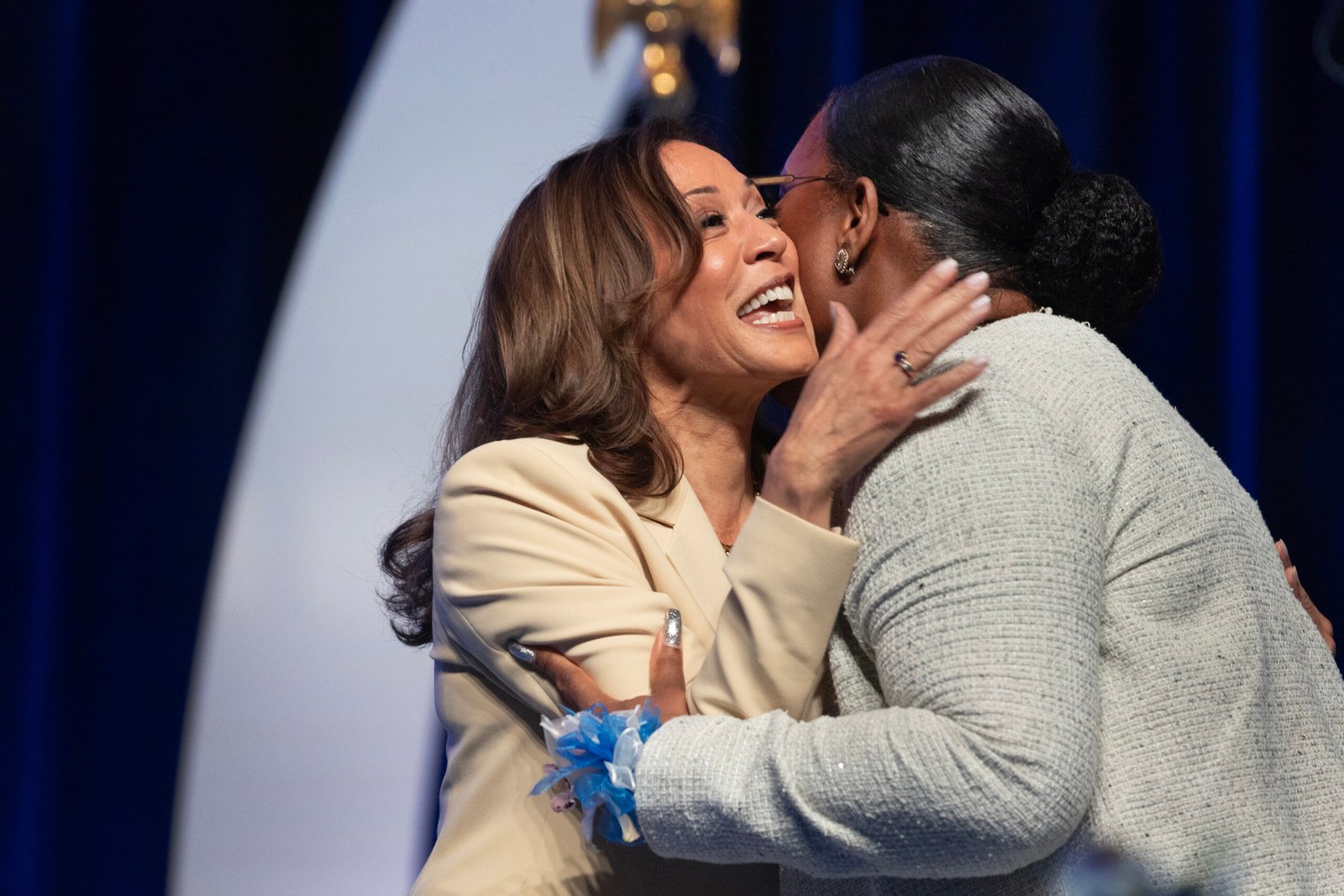2024 election
Black Women Unite to Supercharge Kamala Harris’s Presidential Campaign

WASHINGTON — Vice President Kamala Harris is set to deliver the keynote address at the Democratic National Convention on Thursday, officially making history as the first Black and South Asian woman to lead a major party ticket. Her nomination has reignited a passionate and loyal voting bloc within the Democratic Party: Black women.
Following President Joe Biden’s decision to forgo re-election and endorse Harris, her campaign swiftly gained momentum, amassing over $300 million and securing the necessary delegate votes. Black women have emerged as a critical component in this mobilization effort.
According to Emory University political scientist Andra Gillespie, Harris is experiencing not only a surge in financial support but also an influx of volunteers. The campaign’s battleground states director, Dan Kanninen, reported that more than 360,000 volunteers have signed on to engage in grassroots efforts such as canvassing and phone banking.
Gillespie emphasized the importance of these resources in creating a competitive campaign, particularly in Georgia. Black women’s efforts were instrumental in turning the state blue for Biden in 2020, resulting in two Democratic U.S. senators and a pivotal split Senate.
The Cook Political Report shifted Georgia’s status from “lean Republican” to “toss-up” after Harris officially entered the race, indicating a 1 percentage point lead over her GOP opponent, former President Donald Trump. In contrast, Biden had trailed by 2.5 percentage points in the state.
Howard University associate professor Keneshia Grant noted that the process of nominating Harris wasn’t immediately clear following Biden’s announcement on July 21. Biden took roughly 30 minutes to endorse her after stepping down under party pressure.
Congressman Jim Clyburn had previously urged party leaders to rally behind Harris in anticipation of Biden’s potential exit. Clyburn played a crucial role in securing Black support for Biden during the previous election cycle.
Grant described Black women as the “backbone of the Democratic Party,” asserting that their input signaled broad disapproval of bypassing Harris for the nomination. A significant Zoom call organized by #WinWithBlackWomen witnessed over 90,000 participants and raised more than $1.3 million within hours of Biden’s announcement.
Influence of the “Divine Nine” adds another layer to Harris’s campaign. As a member of Alpha Kappa Alpha Sorority, Inc., she taps into a robust network of Black Greek-letter organizations committed to service and civil rights advocacy.
Deborah Elizabeth Whaley, a professor at the University of Iowa, remarked on the historical significance of these organizations in promoting civil rights initiatives. The Divine Nine, which encompasses four sororities and five fraternities with over 2 million members, is gearing up for a voter registration and turnout mobilization campaign.
Harris’s sorority has formed its own political action committee, reflecting a strategic focus on voter engagement. Whaley highlighted the importance of Black sororities in nurturing leaders and community service advocates.
Upon arriving at her campaign headquarters in Delaware, Harris’s choice of Beyoncé’s song “Freedom” symbolized her commitment to a new political narrative. Grant posits that this decision presents Harris as a dynamic candidate, contrasting her age with that of Trump.
With her campaign tour spanning critical battleground states, Harris has framed her agenda as a “fight for the future,” positioning herself against what she describes as a resurgence of threats to freedoms and rights. At a recent rally in Las Vegas, she stated, “We are not going back.”


















